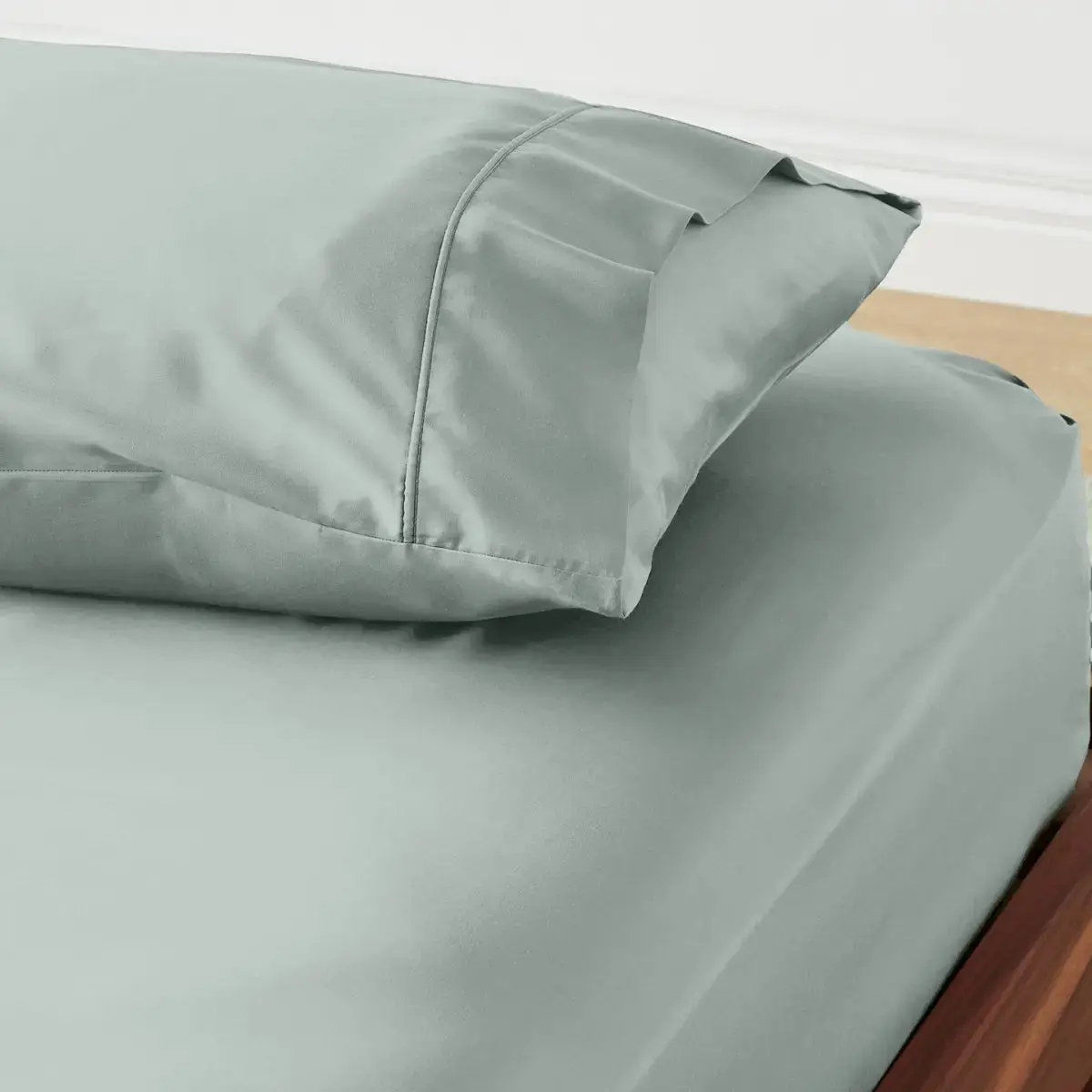As we navigate the hustle and bustle of our daily lives, finding genuine rest can often feel like a luxury we can't afford. Yet, sleep is the foundation of our health.
During Sleep Awareness Week, we invite you to join us in a collective pause to reflect on our sleeping habits and renew our commitment to embracing restful nights for vibrant days.
We're not just talking about the benefits of sleep; we're delving into the research, sharing insights, and offering practical advice to help you achieve the rest you deserve.
Here are seven of the ettitude team's favorite tips on how to "Be Your Best Slept Self"
1. Adopt a Consistent Sleep Schedule, Including Weekends
We all know about the importance of having sufficient sleep, but it turns out that maintaining a regular sleep pattern is just as important. It’s not just how much sleep you get, but when you get it. It helps minimize chronic health problems such as obesity, hypertension, and elevated blood sugar. While it might be tempting to sleep in or stay up late on weekends, try to set a regular bedtime and stick to it as best as possible.
2. Choose Comfortable Bedding
Your choice of bedding plays a crucial role in sleep quality. Opt for breathable materials like CleanBamboo® to maintain a comfortable body temperature throughout the night. It helps you sleep better than cotton and other sheet. A 3rd party sleep study shows clinically significant improvements.
“In a randomized study I helped ettitude run on their bamboo sheets, we found that sleeping on soft, cooling and non-toxic bed sheets helps people improve their sleep quality by more than 10%. This is a clinically significant improvement! This is also backed by other articles in the scientific literature, and also common sense. Sleeping on better sheets helps with regenerative sleep.” says Dr. Dan Gartenberg, CEO of SleepSpace.com. Check out his video describing the study here.
3. Minimize Light and Noise
Reduce exposure to light and noise before bedtime to improve sleep quality. This includes limiting blue light from screens, which can interfere with your sleep cycle. Consider using an eye mask, earplugs, or a white noise machine to create a serene sleep environment, promoting deeper REM sleep and increasing melatonin levels.
4. Avoid screen time before bed – try this hack
It’s hard to ditch old habits, but next time you feel like reaching for your phone or iPad, try going to the bathroom and starting to brush your teeth instead. It will automatically help you start the bedtime routine your body is used to and might make it easier to go to bed instead of scrolling through social media.
5. Incorporate a Pre-Sleep Warm and Cold Shower
A warm shower followed by a cold one before bed can significantly improve sleep onset and quality. The rise and subsequent fall in body temperature can help you fall asleep faster and enjoy a more restful night. Also, nothing feels as good as sinking into bed feeling squeaky clean!
6. Mind Your Diet and Alcohol Intake
A light, nutrient-rich dinner and reduced alcohol consumption can positively impact sleep quality. Large meals and alcohol close to bedtime may disrupt sleep patterns and hydration levels, affecting overall sleep quality.
7. Wear a sleep tracking device
Many smartphones and wearable devices can offer visibility into your sleep patterns. You can use it to improve your sleep hygiene by visualizing your actual results. Try the SleepSpace app to get even more insights and tips on improving your sleep quality!
By integrating these tips into your daily routine, you're setting the stage for improved sleep and, consequently, better overall health. Happy Sleep Week! Let's make every night a good night's sleep.
Your Journey to Sound Sleep Begins with ettitude
Are you ready to transform your sleep and embrace a more restful night? Create your ideal sleep sanctuary with our luxuriously soft and breathable Luxe CleanBamboo® Sateen+ Bedding. Made from 90% CleanBamboo® Lyocell and 10% Bamboo Biochar, it’s antimicrobial, anti-odor, and antifungal. It’s made to help you stay cool and comfortable all night, so you don’t have to worry about night sweats and sleepless nights.
FAQs
How does room temperature affect sleep quality?
Room temperature is an essential factor in sleep comfort. A cooler environment, typically between 60–67°F (15–19°C), helps lower your core body temperature, signalling sleep time. This drop in temperature facilitates the onset of sleep and promotes deeper rest. Adjusting your thermostat or using breathable bedding can help maintain this optimal sleep environment.
Can certain scents improve my sleep?
Yes, aromatherapy can enhance sleep quality. Scents like lavender, chamomile, and sandalwood can help alleviate anxiety and promote relaxation. Essential oils and scented candles help in creating a soothing atmosphere. Consistent exposure to these calming aromas may signal your body that it's time to wind down.
What is the impact of evening exercise on sleep?
A few hours before bedtime, engaging in moderate exercise can aid sleep by reducing stress and promoting relaxation. However, intense workouts too close to bedtime might have the opposite effect, increasing alertness and delaying sleep onset. It's best to schedule vigorous activities earlier in the day and opt for gentle stretches or yoga in the evening. Listening to your body's responses can help you find the ideal exercise routine for restful nights.
How do naps influence nighttime sleep?
Short naps, around 20–30 minutes, can boost alertness and mood without significantly affecting nighttime sleep. However, longer or late-afternoon naps might interfere with your ability to fall asleep at night. If naps disrupt your nighttime rest, consider adjusting their duration or timing to improve sleep quality. Consistency in your sleep schedule remains key to overall sleep health.






















































































